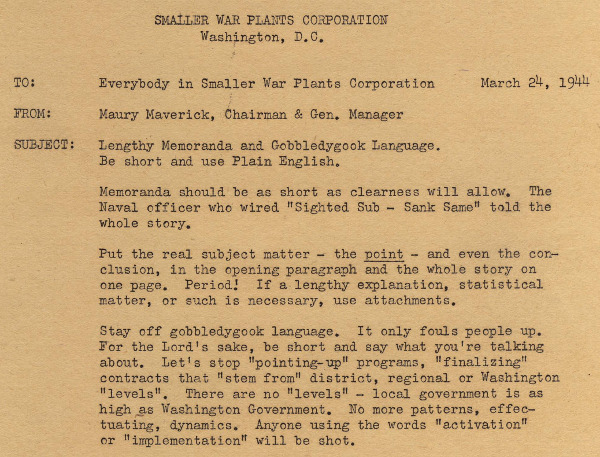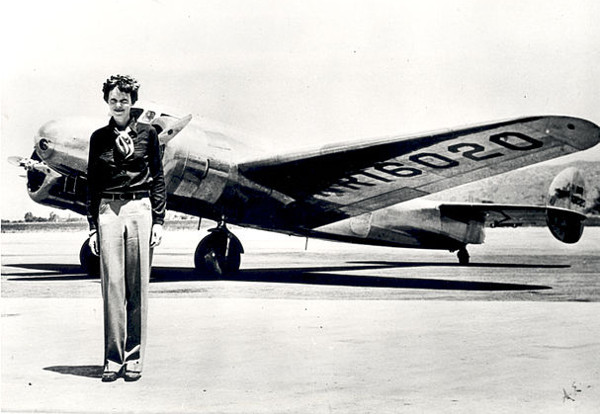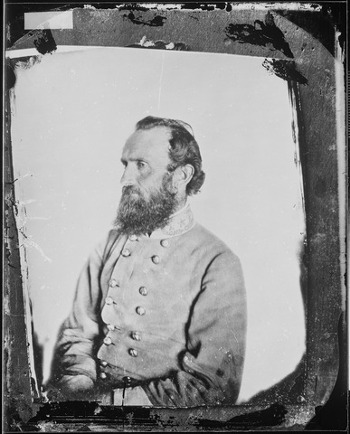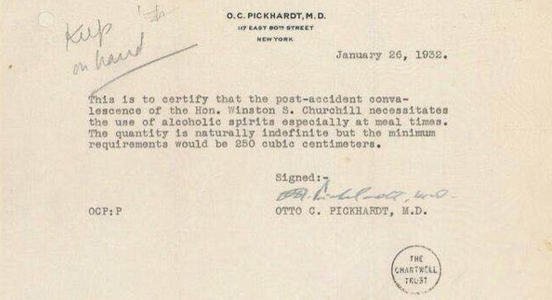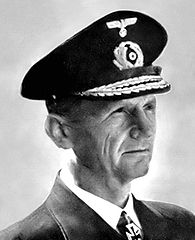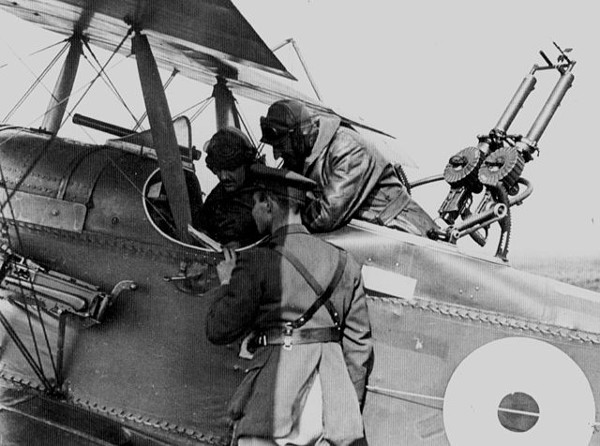
Bombers in World War I were typically manned by two crew members, a pilot and an observer. The pilot operated the forward machine gun and the observer the rear one, so they depended on one another for their survival. In addition, the two men would share the same hut or tent, eat their meals together, and often spend all their free time together. This closeness produced “some remarkable and amusing results,” writes Hubert Griffith in R.A.F. Occasions (1941):
There were pilots who took the precaution of teaching their observers to fly, with the primitive dual-control fitted to the R.E.8 of those days — and at least one couple who used to take over the controls almost indiscriminately from one another: there was the story that went round the mess, of Creaghan (the pilot) arriving down out of the air one day and accusing his observer of having made a bad landing, and of Vigers, the observer, in turn accusing Creaghan of having made a bad landing. It turned out on investigation that each of them had thought the other to be in control of the aircraft; that because of this neither of them, in fact, had been in control at all; and that, in the absence of any guiding authority, the machine had made a quite fairly creditable landing on her own.
Griffith writes, “It was, I suppose, the most personal relationship that ever existed.”

